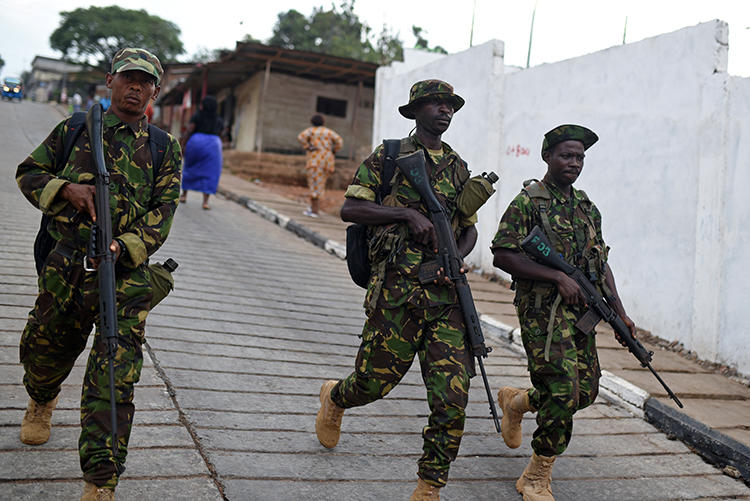
Authorities in Sierra Leone should immediately drop all charges against journalist Fayia Amara Fayia and ensure those responsible for the attacks against him are held accountable, the Committee to Protect Journalist said today.
On April 1, in Sierra Leone’s eastern Kenema city, a group of at least 10 soldiers attacked Fayia, a reporter with the Standard Times newspaper, hitting him with their guns and kicking him, according to the journalist, who spoke to CPJ in a phone interview, and a statement by the Sierra Leone Association of Journalists, a local press freedom group.
Fayia told CPJ that the soldiers attacked him and seized his phone after he photographed a new COVID-19 quarantine center.
The soldiers then arrested him and alleged that he had assaulted a soldier and District Head Mohammed O. Level Sesay, a local official who was at the scene, Fayia said.
After the attack, a local court charged Fayia with assault, disorderly behavior, and obstruction of security duties, he said.
If convicted, he could face up to three months in prison and a fine of 80 Leones ($0.0082), according to Sierra Leone’s Public Order Act.
“Authorities in Sierra Leone should be working to beat the coronavirus, not the press. It is beyond outrageous that journalist Fayia Amara Fayia has been charged with assault and disorderly conduct after being attacked by soldiers,” said Angela Quintal, CPJ’s Africa program coordinator, in New York.
“Fayia’s attackers should be the ones facing trial, not the other way around.”
Following the attack, officers detained Fayia at the Kenema police station for three hours and then transferred him to a local hospital, where he was handcuffed to a bed and held under police guard for four days, he said.
On April 5, police brought Fayia back to the police station and held him for another three days, he said.
On April 8, officers brought him to a local magistrate court, where charges were filed against him, he said.
The court freed Fayia on bail after he posted a bond of 30 million Leones ($3,093) and two sureties, he told CPJ.
He fainted during the April 8 court appearance because he had been denied medication for a preexisting condition during his detention, he told CPJ, saying that he went back to the hospital after the hearing and stayed there until April 12.
The journalist said he appeared in court again on April 15 and 21, and was due to appear again today, but authorities told him his case was suspended amid the government’s lockdown to contain the coronavirus.
He said his phone has not been returned to him, as it is being used as evidence against him in court.
Fayia said he had to use a wheelchair in the weeks after the attack, as his legs were in pain and he cannot move them well.
He said he also has bruises on his head and feels pain across his body.
Brima Kamara, a Sierra Leone police spokesperson, told CPJ by phone that he did not receive a formal complaint regarding Fayia’s assault.
CPJ’s calls and messages to Mohamed Rahman Swarray, Sierra Leone’s information minister, went unanswered.
CPJ’s calls and messages to Sesay, the district head, and Yahya K. Brima, a Sierra Leone military spokesperson, went unanswered.
CPJ was able to reach another military spokesperson via phone, who identified themselves as Major Kiawu.
Kiawu said they believed the army did nothing wrong and asked CPJ to provide evidence showing that Fayia had indeed been attacked by the soldiers.










Recent Comments